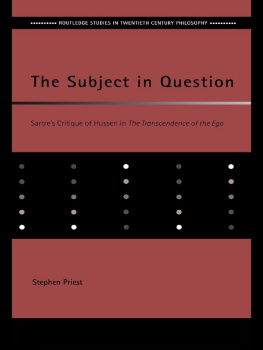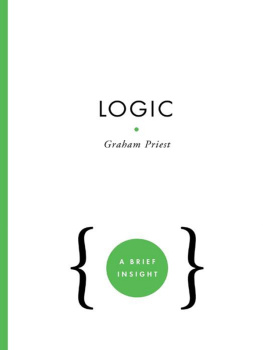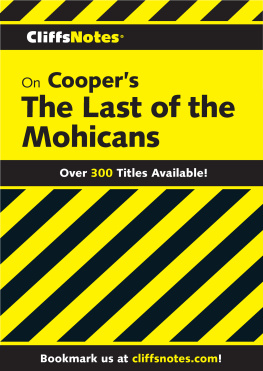Priest - CliffsNotes on Dantes Divine Comedy-III Paradiso
Here you can read online Priest - CliffsNotes on Dantes Divine Comedy-III Paradiso full text of the book (entire story) in english for free. Download pdf and epub, get meaning, cover and reviews about this ebook. City: Boston;New York, year: 1972, publisher: Houghton Mifflin Harcourt, genre: Religion. Description of the work, (preface) as well as reviews are available. Best literature library LitArk.com created for fans of good reading and offers a wide selection of genres:
Romance novel
Science fiction
Adventure
Detective
Science
History
Home and family
Prose
Art
Politics
Computer
Non-fiction
Religion
Business
Children
Humor
Choose a favorite category and find really read worthwhile books. Enjoy immersion in the world of imagination, feel the emotions of the characters or learn something new for yourself, make an fascinating discovery.
- Book:CliffsNotes on Dantes Divine Comedy-III Paradiso
- Author:
- Publisher:Houghton Mifflin Harcourt
- Genre:
- Year:1972
- City:Boston;New York
- Rating:4 / 5
- Favourites:Add to favourites
- Your mark:
- 80
- 1
- 2
- 3
- 4
- 5
CliffsNotes on Dantes Divine Comedy-III Paradiso: summary, description and annotation
We offer to read an annotation, description, summary or preface (depends on what the author of the book "CliffsNotes on Dantes Divine Comedy-III Paradiso" wrote himself). If you haven't found the necessary information about the book — write in the comments, we will try to find it.
CliffsNotes on Dantes Divine Comedy-III Paradiso — read online for free the complete book (whole text) full work
Below is the text of the book, divided by pages. System saving the place of the last page read, allows you to conveniently read the book "CliffsNotes on Dantes Divine Comedy-III Paradiso" online for free, without having to search again every time where you left off. Put a bookmark, and you can go to the page where you finished reading at any time.
Font size:
Interval:
Bookmark:
Copyright 1972 Houghton Mifflin Harcourt Publishing Company
All rights reserved.
www.hmhco.com
cliffsnotes.com
For information about permission to reproduce selections from this book, write to or to Permissions, Houghton Mifflin Harcourt Publishing Company, 3 Park Avenue, 19th Floor, New York, New York 10016.
The publisher and the author make no representations or warranties with respect to the accuracy or completeness of the contents of this work and specifically disclaim all warranties, including without limitation warranties of fitness for a particular purpose. No warranty may be created or extended by sales or promotional materials. The advice and strategies contained herein may not be suitable for every situation. This work is sold with the understanding that the publisher is not engaged in rendering legal, accounting, or other professional services. If professional assistance is required, the services of a competent professional person should be sought. Neither the publisher nor the author shall be liable for damages arising herefrom. The fact that an organization or website is referred to in this work as a citation and/or a potential source of further information does not mean that the author or the publisher endorses the information the organization or website may provide or recommendations it may make. Further, readers should be aware that Internet websites listed in this work may have changed or disappeared between when this work was written and when it is read.
Trademarks: CliffsNotes, the CliffsNotes logo, Cliffs, cliffsnotes.com, and all related trademarks, logos, and trade dress are trademarks or registered trademarks of Houghton Mifflin Harcourt Publishing Company. All other trademarks are the property of their respective owners. Houghton Mifflin Harcourt is not associated with any product or vendor mentioned in this book.
eISBN 978-0-544-18124-3
v1.0816
The story of the Divine Comedy is simple: One day Dante finds himself lost in a dark wood; but Virgil appears, rescues him from that savage place, and guides him to a contemplation of Hell and Purgatory. Then, having confessed his faults, and with Beatrice as his guide, he is conducted into Paradise and attains a glimpse of the face of God.
Dante gave the title of Comedy to his masterpiece because the word indicated a pleasant or (as Dante himself put it) a prosperous ending after a horrible beginning. Dante used the humble lowly language which even women can understand, rather than the sublime language of tragedy. The adjective divine was added to the title later, apparently by an editor some time in the sixteenth century.
The Divine Comedy is distinctly a product of medieval times. Its view of the universe is the Ptolemaic view; its social setting that of the jealous, warring city-states of Italy, and of the powerful, arrogant, and feuding aristocrats and the political factions which supported them. Over all were the contesting powers of a fading empire and a grasping papacy.
In attempting understanding, one may become so entangled in the complexities of the Comedy and its environment that one loses sight of Dante the man. And it was Dante, the man of his times, who wrote the Divine Comedya man whose lifelong devotion to the figure of Beatrice was in the highest tradition of courtly love; whose political feuds were first with the party of the opposition, then with factions within his own party, until he formed a party of his own; a man who believed firmly in alchemy and astrology, in witchcraft and spells; and finally, an intensely human man, with fierce hatreds and loyalties, with no little vanity, with pity, and with love.
The date of the composition of the Divine Comedy is uncertain, but undoubtedly the poem was written during Dantes exile. Even here there is some disagreement, for there is a tradition which insists that the first seven cantos were written before he was banished from Florence. The predominant opinion is that it was begun around 1307; the setting of the poem is the year 1300. There is some evidence that the Inferno had been completed and circulated before 1314, and that the Purgatorio followed very soon after. The Paradiso was completed shortly before Dantes death in 1321 and released posthumously by his sons.
The Divine Comedy is a monumental work of imagination, dedicated in spirit to an immortal love; it is mortal to the point of repugnance in its beginning, mystical almost beyond understanding at its close.
Dante Alighieri was born in Florence in May, 1265, of an old family, of noble origin but no longer wealthy. His education was probably typical of any youth of his time and station: He studied the trivium and quadrivium, probably spent a year, or part of a year, at the University of Bologna, and came under the influence of some of the learned men of his day. Most notable of these was Ser Brunetto Latini, whose influence Dante records in his poem (Inferno 15).
In accordance with custom, Dante was betrothed in his youth to Gemma Donati, daughter of Manetto Donati. These betrothals and marriages were matters of family alliance, and Gemmas dowry was fixed as early as 1277, when Dante was 12 years old. There were at least three children: sons Pietro and Jacopo, and a daughter Antonia, who later entered a convent at Ravenna and took the name of Sister Beatrice. A third son, Giovanni, is sometimes mentioned.
There can be no doubt that the great love of Dantes life, and the greatest single influence on his work, was his beloved Beatrice. He first met her when he was 9 years old and she was 8. The meeting took place in her fathers home, probably at a May Day festival. Dante has described this meeting in his Vita Nuova. He tells of seeing the child Beatrice, wearing a crimson gown and looking like an angel. From that day on, his life and work was dedicated to her. He mentions no other meeting with her until 9 years later, when he saw her on the street, dressed in white, accompanied by two other girls. She greeted him sweetly by name, and he was in raptures. A short time later,having heard gossip linking his name with another young woman, she passed him without speaking, and Dante mourned for days, determining to mend his ways.
If all this seems slightly preposterous, it is necessary to remember two things: that the young women of marriageable age were so strictly chaperoned that it was virtually impossible to have even a speaking acquaintance with them and that Dantes love for Beatrice was in the strictest tradition of courtly love, wherein the lover addressed his beloved as being completely out of his reach, and which viewed marriage between the lovers as impossible, in fact undesirable.
To what extent this was, at first, a true and lasting love cannot be determined. There is little doubt that Dante enjoyed the sweet misery of his situation and the sympathy of other ladies for his plight. After the death of Beatrice, and particularly after his exile, he put away his adolescent fancies, and Beatrice became a true inspiration.
Beatrice was married in about 1287 to Simone de Bardi, a wealthy banker of Florence, a marriage of alliance of the two houses and one completely immaterial to Dante and his work.
Dante wrote many poems in praise of his lady during her lifetime, and when she died in 1290, at the age of 25, he was inconsolable. He had had a dream of her death, and in her honor collected the poems he had written about her, which are included in the Vita Nuova. The later Comedy was also inspired by her memory.
Dantes public life began in 1289, when he fought against Arezzo at Campaldino. In 1295 he was one of the council for the election of the priors of Florence, and in May, 1300, went as ambassador to San Gemignano to invite that commune to an assembly of the Guelph cities of Tuscany. From June 15 to August of the same year, he was one of the priors of Florence, and it was during that year that his best friend, Guido Cavalcanti (
Next pageFont size:
Interval:
Bookmark:
Similar books «CliffsNotes on Dantes Divine Comedy-III Paradiso»
Look at similar books to CliffsNotes on Dantes Divine Comedy-III Paradiso. We have selected literature similar in name and meaning in the hope of providing readers with more options to find new, interesting, not yet read works.
Discussion, reviews of the book CliffsNotes on Dantes Divine Comedy-III Paradiso and just readers' own opinions. Leave your comments, write what you think about the work, its meaning or the main characters. Specify what exactly you liked and what you didn't like, and why you think so.

















